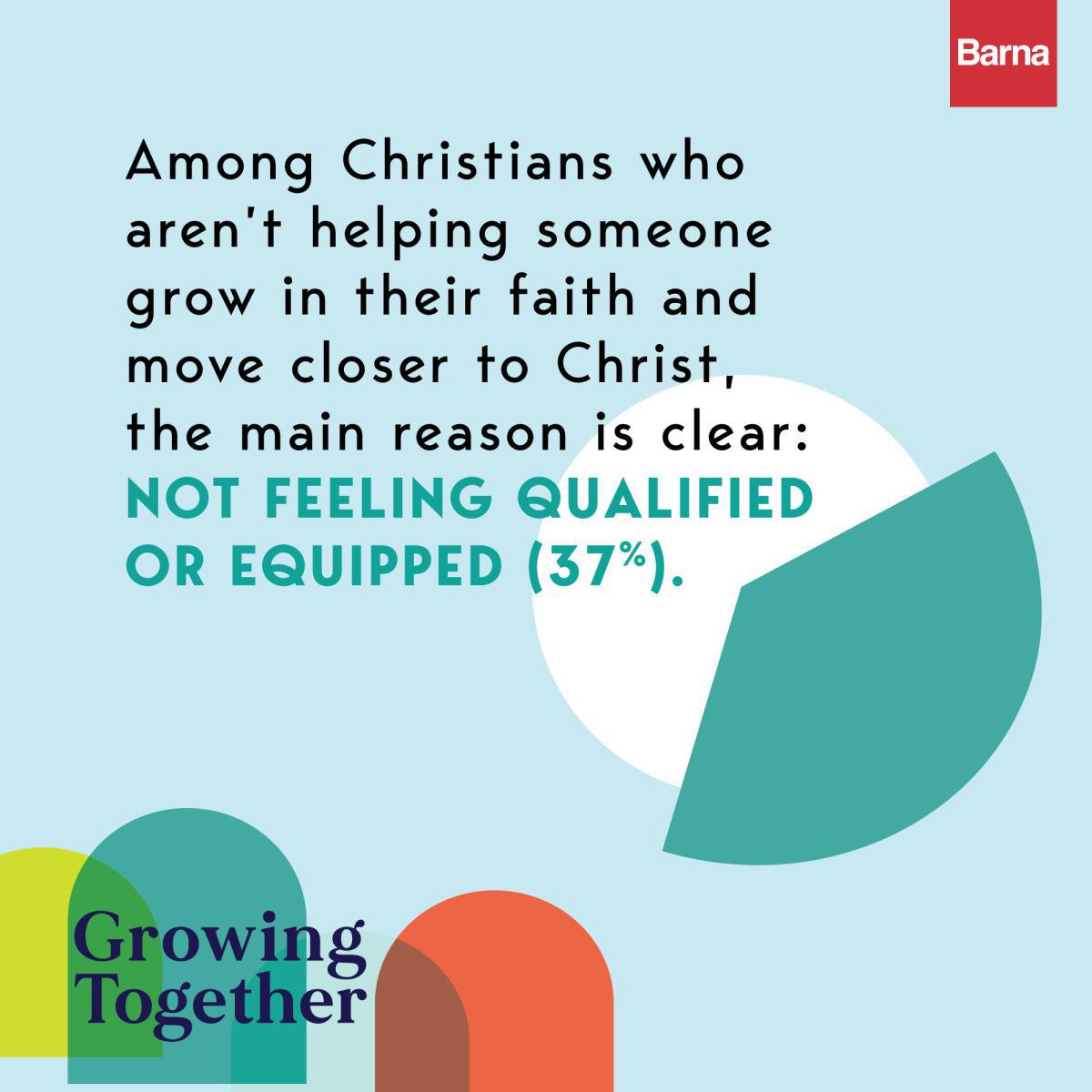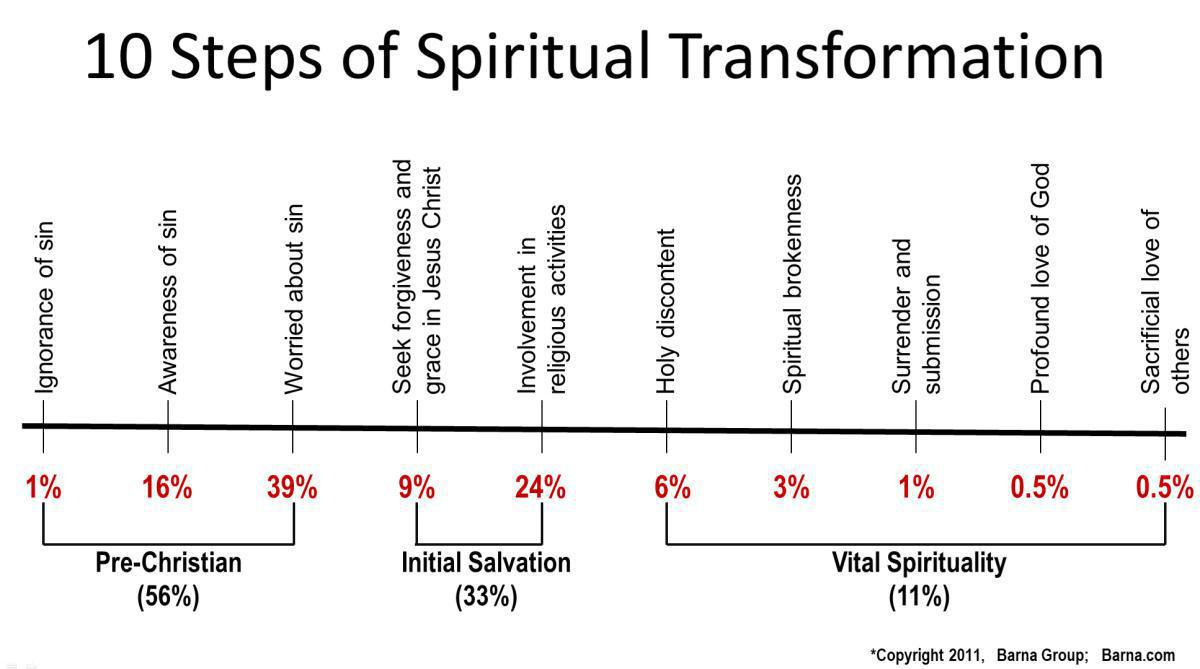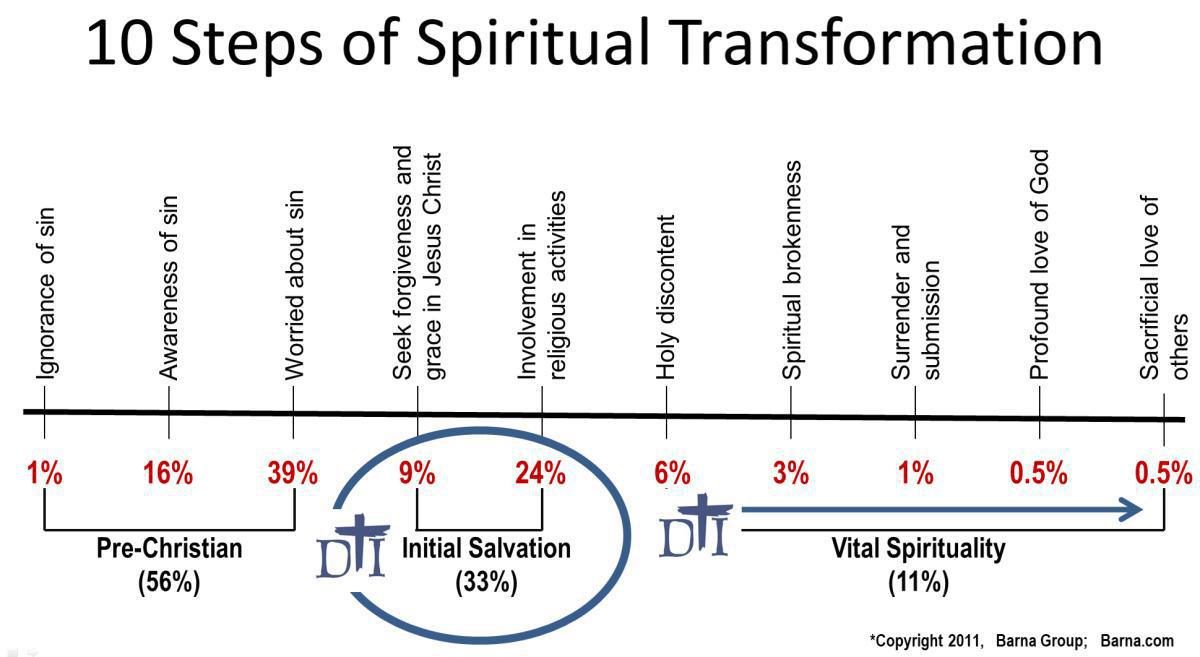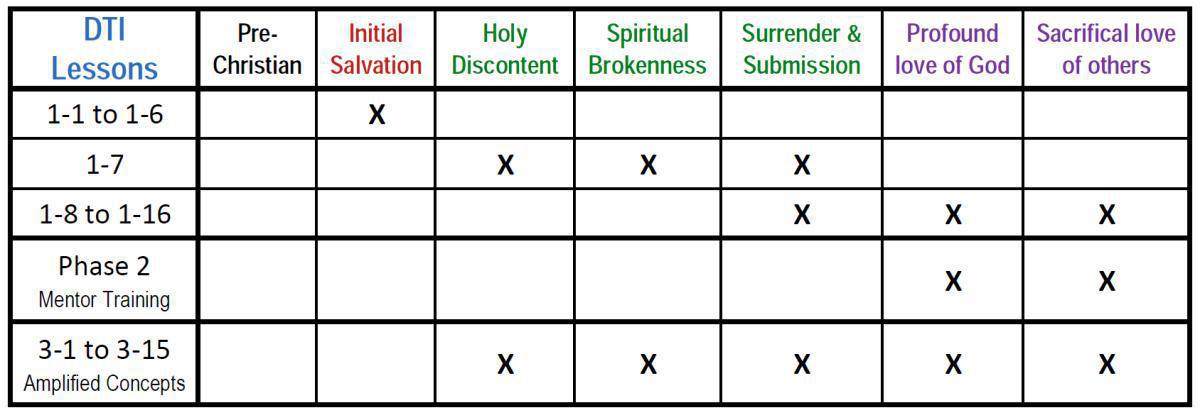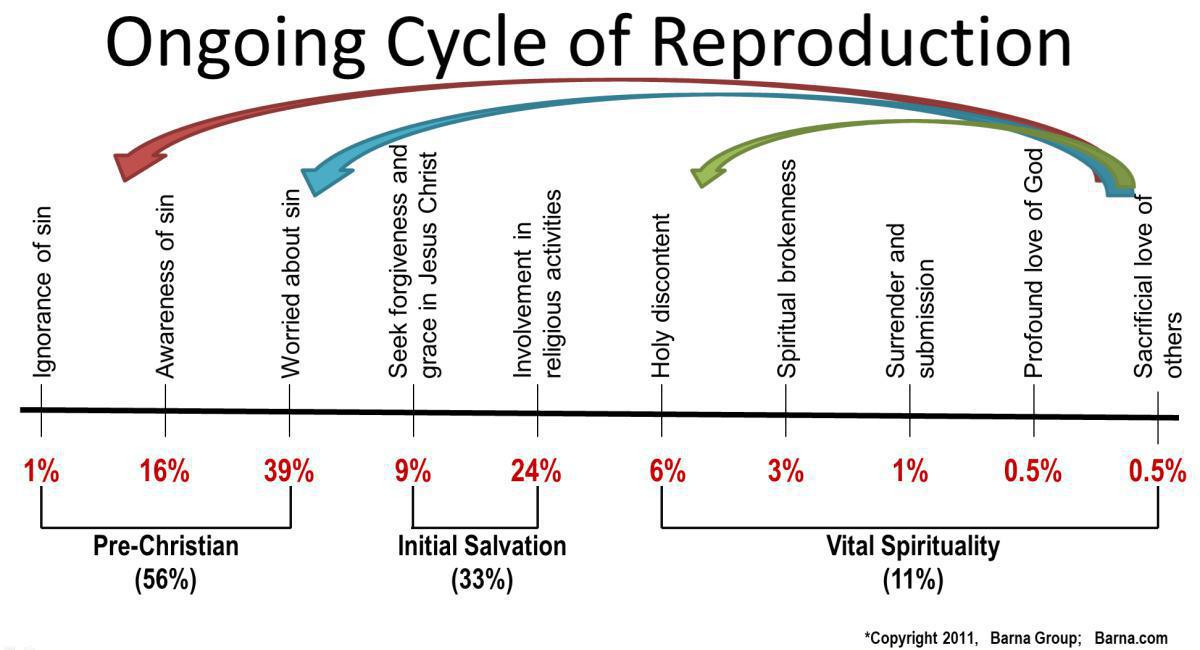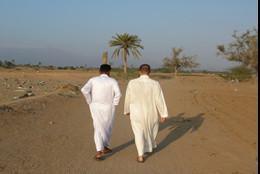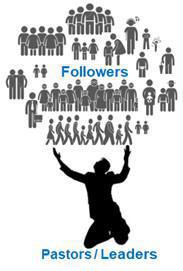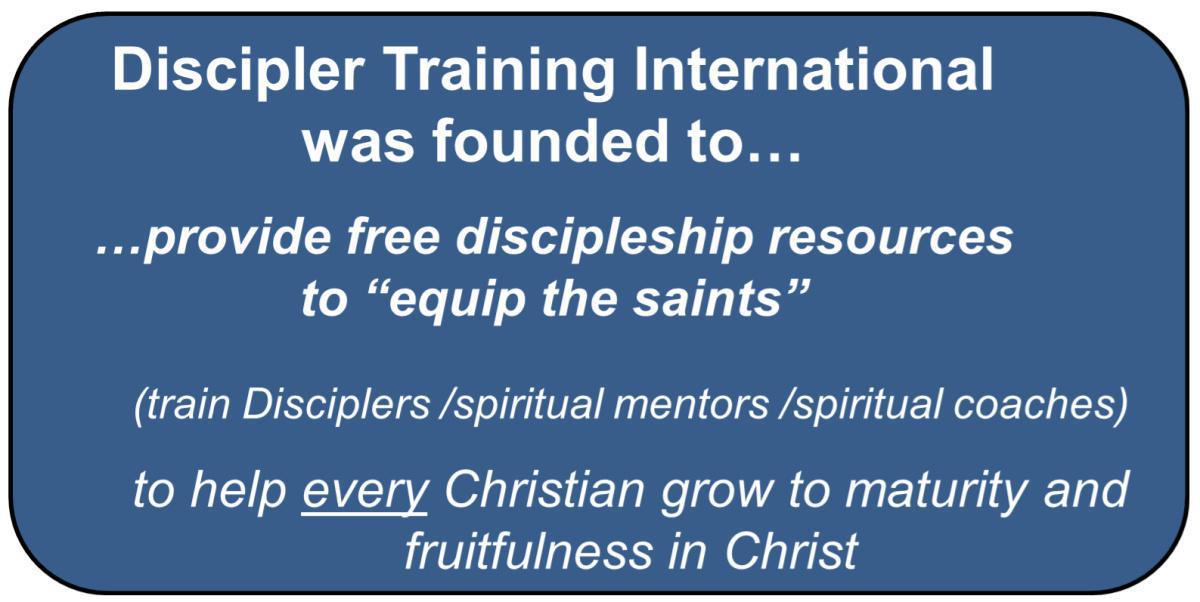Many church leaders would agree that the body of Christ should be having a greater impact on the world. There are myriad reasons why the Church is not spiritually healthier. We will present what we believe are the major reasons for the prevalent spiritual weakness in the Body of Christ and offer solutions to reverse that trend.
Let’s begin with Jesus' words (often called “The Great Commission”)
Matthew 28:18-20 Then Jesus came to them and said, “All authority in heaven and on earth has been given to me. Therefore go and make disciples of all nations, baptizing them in the name of the Father and of the Son and of the Holy Spirit, and teaching them to obey everything I have commanded you. And surely I am with you always, to the very end of the age.” (NIV)
Do you think this was a SUGGESTION from Jesus – or a COMMAND? Let's listen to an expert in this field, Francis Chan.
If it is, indeed, a command, we should take it very seriously.
To fulfill Jesus’ mandate from these verses, we will discuss several questions:
-
What is the PURPOSE of discipling?
-
WHAT is a disciple?
-
What are the expected RESULTS or goals of “making disciples?”
-
HOW do we “make them” and "teach them to obey?"
Every disciple is a convert, but not every convert is a disciple.
1) What Is The Purpose Of Discipling?
Every person is born with a predisposition toward independence from God. That disposition tends to strengthen as the child grows into an adult.
Galatians 5:17 The sinful nature wants to do evil, which is just the opposite of what the Spirit wants. And the Spirit gives us desires that are the opposite of what the sinful nature desires. These two forces are constantly fighting each other, so you are not free to carry out your good intentions. (NLT)
When a person accepts His free gift of salvation, then God begins a process of inward transformation (sanctification). The pace and depth of that transformational process is affected by many factors, but can be accelerated by the openness of the new Christian.
Romans 12:1-2 …, brothers, by the mercies of God, I urge you to present your bodies as a living sacrifice, holy and pleasing to God; this is your spiritual worship. Do not be conformed to this age, but be transformed by the renewing of your mind, so that you may discern what is the good, pleasing, and perfect will of God.
The intent of discipleship (mentoring / “spiritual parenting”/ spiritual coaching) is to help the new believer to understand what God is doing in their life, in order to significantly influence and accelerate that process.
Colossians 1:28-29 (Paul wrote) We proclaim Him, warning and teaching everyone with all wisdom, so that we may present everyone mature in Christ. I labor for this, striving with His strength that works powerfully in me.
10 STEPS OF SPIRITUAL TRANSFORMATION
George Barna (of the Barna Group) in his book Maximum Faith: Live Like Jesus* details the results of a long-term research project, describing a ten-stop journey that produces robust life transformation and why most people struggle to pass the half-way mark. He observed that people are pretty random – not intentional – about their efforts to experience God-driven transformation. (Barna.com)
(Copyright 2011, published in association with the literary agency of Fedd and Company, Inc. 606 Flemingo Blvd, Austin, TX 78734, a joint publication of Metaformation Inc., Ventura, California; Strategenius Group LLC, New York, New York; and WHC Publishing, Glendora, California.)
In the chart below, we have adapted and summarized the “Ten Stops” data from Chapter 2.
Watch the video below where Jeannette Meitz from DTI reviews the 10 Steps of Transformation to become more like Jesus, with excellent comments and insights.
LET'S "DIG" DEEPER INTO THE “TEN STOPS” OF SPIRITUAL TRANSFORMATION
At their General Conference 2019 (Free Methodist Church), Bishop Keith Cowart said this about these 10 Steps of Transformation. "This study tells us that we are struggling mightily with discipleship. Many churches are actually 'lowering the bar' -- telling people it won't cost them to follow Jesus. But that's not what Jesus said!" In Matthew 16:25, Jesus said, “If anyone wants to come with Me, he must deny himself, take up his cross, and follow Me.”
Bishop Cowart continued, "Discipleship must be focused on life transformation, not just joining a church." He also pointed out that Jesus did not say just to 'teach them', but 'teach them to obey'. (NIV)
Barna says that these stops (or steps or waypoints) in our journey to wholeness can be used as a reasonable guide to help us stay focused on our growth and transformation to become more like Jesus and become spiritually mature. They are not necessarily linear, but more of an “ebb and flow” of steps forward and steps backward. And since each stop or step has an accompanying “price tag”, people sometimes go completely backwards and camp out there, rather than endure hardship or other suffering. They get comfortable in a less-demanding stop and settle for less than God’s best for them.
We also may allow God to transform us in several areas, Barna says, without letting Him completely transform all areas.
While there is so much wonderful content in George Barna’s book (and we recommend you read it and be challenged by the research findings), we want to focus on HOW can we help Christians progress on their journey to the Vital Spirituality section and not park or plateau at any one waypoint?
Note that the last three stops / steps / waypoints make up ONLY 2% OF ALL AMERICANS! That is very sad indeed. But that is why Discipler Training International has developed A Tool For Personal Discipleship (available free to download in .pdf or as an App for mobile devices on our website).
If all new believers residing in “Initial Salvation” (the 33%) could each be spiritually mentored by a more mature believer who is farther along in their “Spiritual Vitality” (the 11%), the church would have a greater impact! How does this happen? Through the transformation process, God will help them be willing to invest time and energy into other believers. (Spiritually mentor them!)
This chart shows where the DTI lessons in (A Tool For Personal Discipleship) most probably apply to help move Christians “to the right” along their spiritual journey towards “Sacrificial love of others.”
It is the believers who are in the last two “steps” who will be witnessing to the Pre-Christians (56%) and discipling / spiritually mentoring the new believers (33%), so that more and more Christians are being transformed creating an ongoing cycle of reproduction where disciples are making disciples who make disciples, as Paul instructs his mentee Timothy:
2 Timothy 2:2 And what you have heard from mein the presence of many witnesses, commit to faithful men who will be able to teach others also.
2) What Is A Disciple?
We are all disciples of something (or someone). Are we disciples of Jesus? Are we being transformed from the inside out by our relationship with Him, becoming more like Him in our heart attitude and dependence on the Father, not just striving to ACT like Jesus in our own strength? Or are we adhering to the values and beliefs of the world around us, as depicted in Romans 12:2?
a) A Disciple of Jesus is not just a student, but an apprentice, a protégé.
A Student – Typically the goal of a student is to learn knowledge (information), that is, to learn what the teacher knows. The student may not even respect or like the teacher.
A Disciple – A disciple, on the other hand, is a student / apprentice who has the goal of becoming like the teacher. This requires personal interaction and commitment by the teacher (mentor / spiritual parent) to the apprentice learner / protégé.
Luke 6:40 (Jesus said) “A disciple (apprentice learner) is not above his teacher, but everyone who is fully trained will be like his teacher.”
Matthew 10:24-25 (Jesus said) “A disciple is not above his teacher, or a slave above his master. It is enough for a disciple to become like his teacher and a slave like his master.…”
A Student wants to know what the Teacher knows.
A Disciple wants to be LIKE the Teacher.
(See also the article in the Appendix: “Characteristics of a Biblical Disciple”)
b) Often in the Christian community the term “discipleship” has become synonymous with “teaching.”
To influence many people simultaneously appears efficient and is generally considered the method of choice by many leaders.
Thus, anyone who “teaches” is considered to be fulfilling the mandate to “make disciples.” And a believer who exhibits acceptable levels of Christian behavior is considered a disciple.
While others just listen as one person is speaking to many appears efficient, we have found that a disciple (apprentice) must be given opportunities to express and discuss their unique needs and understanding and ask questions in order to mature more rapidly and fully.
What appears to be most efficient is not necessarily what is most effective.
Because many leaders measure success by numbers, this is one reason there is such an emphasis in the Christian community to hold events and activities, which gives the impression of short-term success, if attendance is the measure. But does it lead to sustained spiritual maturity?
c) The personal commitment (time) needed to make disciples seems prohibitive to many leaders and appears inefficient.
The teacher-disciple (mentor / protégé) model demands a greater commitment of time and resources, but we have found that it results in the greatest individual spiritual growth and impact.
There is deeper interaction between the discipler and the believer being discipled than that of simply teaching. While teaching is a crucial component of the discipleship process, when the mentor focuses on the disciple’s heart attitude, rather than just what the disciple “does” or “learns,” spiritual maturity is accelerated.
3) What Are The Expected Results or Goals of Making Disciples?
While knowledge is the result of learning, we submit that the anticipated results of discipleship should be:
- SPIRITUAL MATURITY
Colossians 1:28-29 (Paul wrote) We proclaim Him, warning and teaching everyone with all wisdom, so that we may present everyone mature in Christ. I labor for this, striving with His strength that works powerfully in me.
-
SPIRITUAL FRUITFULNESS
John 15:8 (Jesus said) My Father is glorified by this: that you produce much fruit and prove to be My disciples.
-
SPIRITUAL REPRODUCTION
2 Timothy 2:2 (Paul wrote) You have heard me teach things that have been confirmed by many reliable witnesses. Now teach these truths to other trustworthy people who will be able to pass them on to others.
As believers grow, we should see the transition from being a convert to becoming a Biblical Disciple of Jesus Christ, a believer being transformed into the image of Jesus.
In a spiritually healthy congregation spiritual reproduction should be observable and measurable, and everyone should be in the process of either being spiritually mentored or mentoring someone.
A measure of success is when the Believer being discipled becomes a functioning Discipler.
4) How Do We “Make Them” and "Teach Them To Obey?"
How do we help Christians become LIKE their master and King, Jesus? What’s the biggest challenge to this happening consistently in the local church?
THE CHALLENGE: Expectations in a Typical Modern Church Congregation
-
Followers usually feel they are not adequately qualified and equipped to meet the needs of new believers and often think it’s the Pastor’s / Leaders’ role.
-
Pastors / Leaders are often perceived to be “trained” to disciple others but don’t have the necessary time to devote individually to each new believer.
God designed the Church as a “Body”, intending that the members of the body be interdependent and share responsibilities and service initiated and directed by the Holy Spirit to accomplish His purposes.
1 Corinthians 12:28-31 Here are some of the parts God has appointed for the church: first are apostles, second are prophets, third are teachers, then those who do miracles, those who have the gift of healing, those who can help others, those who have the gift of leadership, those who speak in unknown languages. Are we all apostles? Are we all prophets? Are we all teachers? Do we all have the power to do miracles? Do we all have the gift of healing? Do we all have the ability to speak in unknown languages? Do we all have the ability to interpret unknown languages? Of course not! … (NLT)
"God never intended that a special category of believers (leadership) should carry the entire load, but rather the responsibilities of service should be spread across the Body.
If discipleship simply means “the presentation of biblical truth,” then leaders perceive that their responsibility is to preach that message, expecting each believer to allow the Holy Spirit to apply those truths to their own lives.
However, since most newer believers are unfamiliar with how to communicate and cooperate with the person of the Holy Spirit, they will flourish and mature more quickly if somone personally helps them understand how to cooperate with the Holy Spirit in their personal spiritual development.
In addition, many churches attempt to develop “teachers” rather than “disciplers” and to focus on those who seem to have the “gift” for teaching. Since teaching is a gift of the Spirit, we must conclude that not all will have that gift.
But discipling is not a gift. Therefore, while we should only expect a few believers to become teachers, almost all believers should be seen as potential disciplers.
The next challenge is that many churches convey that seminary or Bible school training is needed to present God's Word correctly. Certainly God has used such training in the spiritual development of many leaders, but does that mean that those who don’t have that training are not qualified at all? And is it realistic to expect the typical Christian to have such training before God can use them to come alongside others?
A SOLUTION: Implement a Better Model by Equipping ALL Faithful Believers
Ephesians 4:11-16 And He personally gave some to be apostles, some prophets, some evangelists, some pastors and teachers, for the training of the saints in the work of ministry, to build up the body of Christ, until we all reach unity in the faith and in the knowledge of God’s Son, growing into a mature man with a stature measured by Christ’s fullness .
Then we will no longer be little children, tossed by the waves and blown around by every wind of teaching, by human cunning with cleverness in the techniques of deceit. But speaking the truth in love, let us grow in every way into Him who is the head—Christ. From Him the whole body, fitted and knit together by every supporting ligament, promotes the growth of the body for building up itself in love by the proper working of each individual part.
These verses clearly state that the role of Leaders is to “equip the saints” (train them in the work of ministry). That would include discipling / spiritually mentoring others. This can be done in corporate training gatherings or modeled in intimate one-on-one relationships.
-
The role of the “saints” / followers is to have a surrendered attitude and learner’s disposition to continue to grow and to be trained to mentor others.
-
THE RESULT should be that personal discipleship / one-on-one mentoring is the norm rather than the exception. The expectation is that every believer is in the process of being discipled or discipling others.
The ultimate goal is spiritual maturity, spiritual fruitfulness, and spiritual reproduction of each believer individually, and of the Church body as a whole, which leads to church growth through multiplication.
The DTI Mission Statement is based on Colossians 1:28-29 where Paul states, We proclaim Him, warning and teaching everyone with all wisdom, so that we may present everyone mature in Christ. I labor for this, striving with His strength that works powerfully in me.
Paul’s passion was to help every believer to reach the level of spiritual maturity that God has intended.
CONSIDER the free resources on our DTI website for equipping believers to spiritually mentor others:
-
Core Resource: A Tool for Personal Discipleship can be used:
-
In a one-on-one mentoring relationship (or one-on-two)
-
In group corporate study
-
For personal study and growth
-
In training faithful believers to mentor others, helping to identify gaps in their spiritual understanding
-
-
How to access the Tool (curriculum)
-
Available to download and print in English, Spanish or Mandarin on our website. www.disciplers.org
-
Available as an App for mobile devices in English or Spanish on our website.
-
-
Plus videos, Implementation Guide, Facilitation Guide, and more.
If God’s intention is for believers to become spiritually mature, then why are so many believers immature?
W. Edwards Deming said “Every system is perfectly designed to get the results that it does.”
The above statements should motivate all church leaders to honestly analyze the system they are implementing, and look to the Lord for His wisdom and direction as to what changes need to be made in order to produce Biblical results. We suggest that many churches are not following the model Paul laid out in Ephesians 4:11-16.
What follows is a model churches can use to assist in implementing what Paul said, beginning with equipping faithful men and women to come alongside newer believers to help them grow


